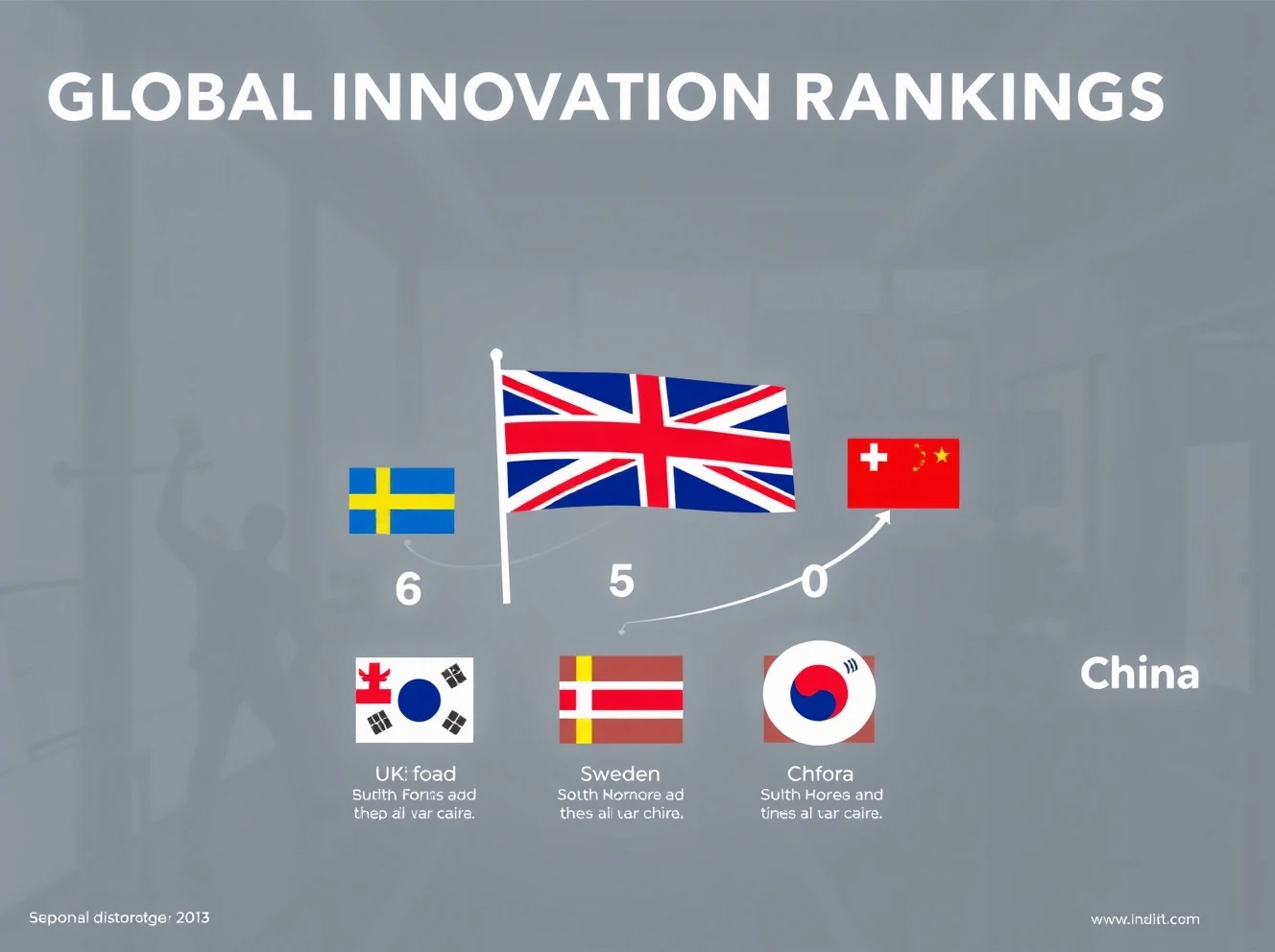The United Kingdom has suffered a significant setback in global competitiveness, dropping to sixth place in the prestigious World Intellectual Property Organisation’s innovation index. This alarming decline marks the second consecutive year of falling rankings, raising serious concerns about Britain’s ability to maintain its innovation leadership position.
Understanding the Global Innovation Rankings Methodology
The World Intellectual Property Organisation assesses nearly 140 economies using 80 precise indicators. Consequently, these measurements provide comprehensive insights into national innovation capabilities. Key evaluation criteria include:
- Research and development expenditure as percentage of GDP
- Venture capital investment in technology sectors
- High-technology exports and manufacturing output
- Intellectual property filings including patents and trademarks
- Scientific publications and university-industry collaboration
Top Performers in Global Innovation Rankings
Switzerland maintained its top position in the global innovation rankings for the fourth consecutive year. Meanwhile, Sweden climbed to second place, demonstrating remarkable consistency in innovation policy. The United States secured third position, while South Korea achieved the most dramatic improvement, jumping from eleventh to fourth place since 2019.
UK’s Position in Global Innovation Rankings
Britain’s descent to sixth place represents a concerning trend. Previously ranked fourth in 2024 and fifth last year, this continuous decline suggests structural challenges. Lord Vallance, the UK’s science minister, expressed dissatisfaction with this trajectory. However, he emphasized the government’s commitment to reversing this trend through strategic interventions.
European Context and Brexit Implications
Other European nations also experienced mixed results in the global innovation rankings. Germany fell two places to eleventh position, while France dropped to thirteenth. Interestingly, Paris has intensified efforts to attract UK tech firms post-Brexit. Nevertheless, these developments haven’t prevented overall European slippage in the innovation standings.
Emerging Economies Rising in Innovation
The report highlighted remarkable progress among emerging economies. Saudi Arabia, Qatar, and Brazil demonstrated particularly strong performance. Additionally, Mauritius, Bahrain, and Jordan emerged among the fastest climbers since 2020. These nations have implemented aggressive innovation strategies that are yielding measurable results.
Global Research and Development Trends
Global R&D spending growth slowed significantly to 2.9% in 2024. This represents a substantial decrease from 4.4% the previous year. Furthermore, WIPO projects further weakening to 2.3% this year. The automotive and consumer goods sectors drove this slowdown through substantial budget reductions.
Sector-Specific Investment Patterns
Artificial intelligence companies maintained strong investment levels throughout 2024. Similarly, software and pharmaceutical sectors continued attracting substantial venture capital. Conversely, traditional manufacturing and consumer goods experienced the most significant funding contractions.
Government Response and Future Strategy
British officials acknowledge the concerning trajectory revealed by the global innovation rankings. Science Minister Lord Vallance stated: “We have clearly got the potential with the science base that we have got, the start-up base that we have got and the entrepreneurs we have got to be at the forefront.” The government is developing a comprehensive strategy to address this decline.
Implications for UK Business Competitiveness
This ranking drop signals potential challenges for British businesses operating internationally. Innovation directly correlates with productivity growth and competitive advantage. Therefore, sustained decline could affect foreign investment decisions and long-term economic performance.
Frequently Asked Questions
What caused the UK’s drop in global innovation rankings?
The decline resulted from multiple factors including reduced R&D spending growth, decreased venture capital activity in certain sectors, and stronger performance from competing nations particularly in Asia.
Which countries showed the most improvement in innovation rankings?
South Korea demonstrated the most dramatic improvement, rising from 11th to 4th place since 2019. China entered the top ten for the first time, while several Middle Eastern nations showed significant progress.
How often are global innovation rankings updated?
The World Intellectual Property Organisation publishes updated global innovation rankings annually, typically in September, using data from the previous calendar year.
What specific areas did the UK perform poorly in?
While detailed breakdowns will follow, initial indicators suggest challenges in venture capital deployment, business R&D expenditure, and technology transfer from academia to industry.
Can the UK recover its position in future rankings?
Yes, with targeted policy interventions, increased public and private investment in research, and enhanced support for technology startups, the UK could potentially reverse this trend within 2-3 years.
How does innovation ranking affect ordinary citizens?
Higher innovation rankings typically correlate with better-paying jobs, advanced healthcare technologies, improved public services, and overall economic prosperity that benefits all citizens.








